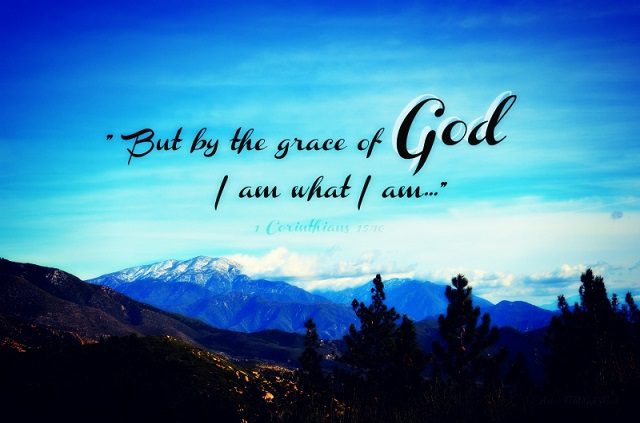
Phil Johnson is the Executive Director of popular Protestant expositor John MacArthur’s Grace to You ministry, and ordained elder and pastor at Grace Community Church. The following dialogue took place on the public Theology List. Phillip’s words will be in blue.
*****
I’d like you to show me where the Catechism of the Catholic Church says anything about God securing our cooperation by grace.
Gladly: #1989, 1992-1993, 1996, 1998-2003, 2007-2010, 2018, 2022-2023, 2025-2027, pp. 482-487, 489-490.
#1996 reads:
Our justification comes from the grace of God. Grace is favor, the free and undeserved help that God gives us to respond to his call to become children of God, adoptive sons, partakers of the divine nature and of eternal life.
#2027:
No one can merit the initial grace which is at the origin of conversion . . .
But, Dave, not one of those passages teaches that God secures the sinner’s cooperation.
I disagree (what else is new?). I think #1996, 1998, and 2001 in particular do precisely that, and more, since they speak of eternal life as a gift of God, entirely unearned by man apart from God. The immediate question above had to do with God securing our cooperation, not salvation, and I answered it, 25 times. If you meant “secure our salvation” (a different proposition), then — in my humble opinion — you should have made that more clear.
Read my post again. I did not merely ask you to cite where the Catechism refers to divine grace. I asked you to show me where it describes grace as something that actually secures either 1) a positive response from the sinner, or 2) ultimate salvation for anyone.
In the immediate context above, you referred to the sinner’s cooperation, not “ultimate salvation.” In fact, we Catholics do hold that God elects persons to eternal salvation. Right now in my debate with [a Calvinist], you’ll note that he often refers to the Thomist position on predestination as very similar to his own Calvinist position (at least where the elect are concerned, I would hasten to add).
. . . and that does not demonstrate what I asked for. It doesn’t even come close. Note that it describes grace as “help.” So it’s saying grace is something that assists the willing sinner. This does not suggest that grace secures anyone’s willingness.
The Catechism wisely refrains from elaborate expositions of predestination. Catechisms are not systematic theologies. They are written for laymen attempting to understand and live out Catholic Christianity, not philosophers, theologians, or impractical people like us who have nothing better to do than sit around and discuss stuff like supralapsarianism, transubstantiation, and antidisestablishmentarianism. Even so, I think the three citations above — rightly understood — provide the stricter answer you are looking for.
Even semi-Pelagians believe that grace is a necessary aspect of salvation. No one has disputed that Roman Catholicism believes that much.
Not even Jack Chick or Tony Alamo et al?
But, Dave, the simple fact is that Rome does not believe grace actually secures the salvation, or even the willingness, of anyone.
And Bah humbug!!!!!!!!!!!! Patent falsehoods . . .
Indeed, this is a major point on which Catholics, Eastern Orthodox, Semi-Pelagians, and Arminians all agree against the Reformation: all these views deny that God has any control whatsoever in gaining the sinner’s cooperation and assent. Instead, conversion is left to “free will.” Therefore your God is helpless to save someone who is determined to pursue sin and rebellion.
This is abysmally ignorant and astonishing in one so learned and otherwise eloquent. Aside from the citations above, anyone can readily verify the outrageous falsity of these charges (at least with respect to Catholicism), by reading the following chapters from the Decree on Justification from the Council of Trent: 3, 5, 7, 8, and also the Canons 1-3. Catholic theologian Ludwig Ott states that the following proposition must be believed by all orthodox Catholics (a de fide dogma):
GOD, BY HIS ETERNAL RESOLVE OF WILL, HAS PREDETERMINED CERTAIN MEN TO ETERNAL BLESSEDNESS.
Ott says that the doctrinal definitions of Trent presuppose this.
Well, I urge anyone who really thinks I might be wrong to read those documents and see for yourself that there is nothing here to suggest that grace actually secures a positive response from the sinner. The grace described by Trent cannot ensure even the repentant sinner’s ultimate salvation. On the contrary, if you read the whole document, you will note that the Decree on Justification (chap. 15) teaches that those who receive grace can lose it by committing a mortal sin.
Of course. Just as in Calvinism, someone who goes to hell (due to mortal sin, in Catholicism) is obviously not among the elect (but even so, we can’t know that for sure, as we don’t know the eternal destiny of anyone — excepting instances such as Elijah). Calvinists have no more “assurance” than we do because when someone falls away, you simply say that proves he was not divinely elected.
We simply can’t know with certitude who is to be saved, and who damned, whatever the deluded self-confident claims are to the contrary. It reduces to an epistemological, not theological, problem. Believers in both parties, however, can certainly have a very high degree of assurance of being in right relation to God, especially if they are living righteous, upright lives, which is a sign of election in both systems.
[Snip stuff on Catholicism and predestination. I’ll leave all that to someone else.]
Very convenient for you! This is precisely what is most relevant to the discussion, and you want to “leave all that to someone else.” I assume, then, that you’ll “leave” the response to my predestination post to “someone else” too?
[he did, but no one else in a list of 100 or so Protestants — I was the lone active Catholic — ever took up the challenge]
You have in effect claimed that the Council of Trent affirmed the Calvinistic doctrine of Irresistable [sic] Grace.
No, you’re putting words in my mouth. But my predestination post ought to be of great comfort and use to you, when you see how similar we really are, just as I have been pleasantly surprised about Calvinism, the more I learn about it, from people who have been patient enough to explain it carefully.
My God [note the implication that Catholics, and even Arminian Protestants, worship a different God] on the other hand, can even effect the total turnaround of someone like Saul of Tarsus–or worse yet, Phillip Johnson.
Mine, too. We worship the same Lord.
I believe that Roman Catholicism, since Trent, has so seriously corrupted the doctrine of justification that it does not deserve to be regarded as authentic Christianity (cf. Gal. 1:8-9). I deplore Catholic doctrine, just as I deplore Mormon doctrine.
Then you are one confused individual indeed. This is self-defeating and ludicrously incoherent and thus unworthy to be adhered to by any educated Protestant.
That does not mean I dislike Roman Catholics, any more than it means I dislike Mormons. I have great love and concern for people trapped in the darkness of both systems. And for that very reason I would no more assume a Roman Catholic is a brother or sister in Christ than I would make such an assumption about a Socinian [non-trinitarian] “Protestant,” a gnostic new-age “Christian,” or anyone else who denies that Christ’s righteousness alone is the sole and sufficient ground of our justification.
What about John Wesley, or C. S. Lewis, or Dietrich Bonhoeffer, or Soren Kierkegaard? Are they equally as suspect in your eyes, on the same grounds? Mother Teresa and St. Francis of Assisi quite possibly in hell . . . ? This is so absurdly asinine, one wonders how to respond. I haven’t figured it out yet.
I believe Romans 4:4-5 makes a crystal-clear dichotomy: “To the one who works, his wage is not reckoned as a favor, but as what is due. But to the one who does not work, but believes in Him who justifies the ungodly, his faith is reckoned as righteousness.” Verse 4 describes those who are working toward ultimate justification. Verse 5 contrasts them with true Christians, who refuse to work for any part of their justification — but instead they rest their whole confidence on a righteousness that is imputed to them. (See also Phil. 3:7-9.) I’ll leave it to you to declare which category you fit into.
I’m in the category of those who “work out” their “own salvation with fear and trembling; for God is at work in [me], both to will and to work for his good pleasure” (Phil 2:12-13 — NRSV; cf. Mt 5:20, 7:16-27, 16:27, Lk 14:13-14, Acts 6:7, 10:31,35, Rom 1:5, 2:5-13, 6:17, 10:16, 15:18-19, 16:25-6, 1 Cor 3:8-9,13, 4:5, 15:10,58, 2 Cor 5:10, Gal 5:6, 6:7-9, Eph 2:8-10, Col 3:23-25, 1 Thess 1:3, 2 Thess 1:8,11, 1 Tim 6:18-19, Titus 1:15-16, 3:5-8, Heb 11:8, Jas 1:22-27, 2:14-26[cf. Ps 106:30-31], 1 Pet 1:2,17, 2 Pet 1:10, Rev 22:12).
You think “works,” even those wholly wrought by God’s enabling grace, have nothing to do with justification and salvation. I think the Bible (per the above evidences) perspicuously teaches otherwise, which is why sola fide was unknown, according to Norman Geisler, between the times of Paul and Luther.
***
(originally from late 1996)
Photo credit: Art4TheGlryOfGod by Sharon (2-2-13) [Flickr / CC BY-ND 2.0 license]
***













